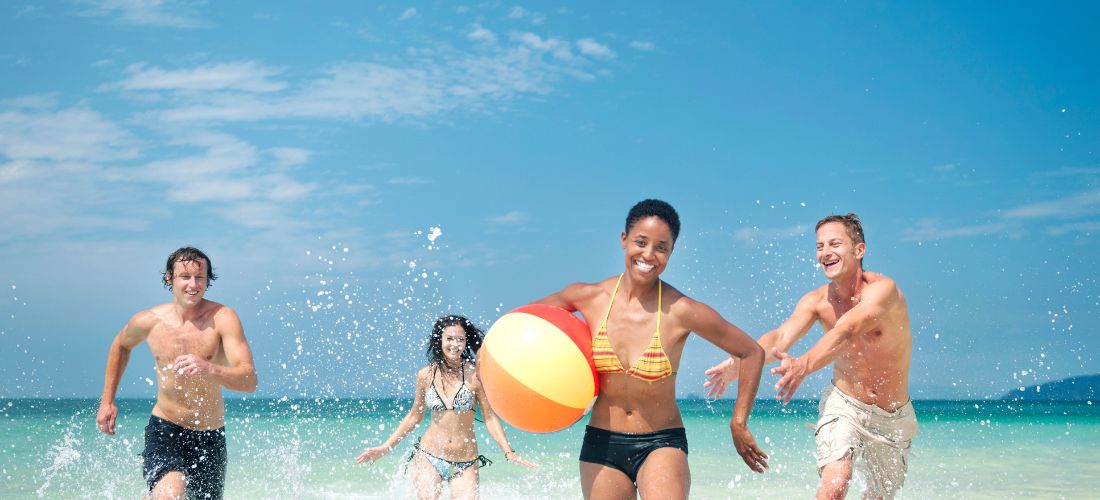Can I Get Hay Fever on Holiday?

Content by

Last Updated
Table of Contents
Holiday Destinations
Hay fever seasons differ depending on the region of the world you're in.
Humidity, climate, and regional pollen-producing plants can all affect your likelihood of symptoms. It's not just the country to consider, but the local area too. For the most part, coastal destinations typically have lower levels of pollen because of the breezy conditions, but local vegetation can affect this. For example, at a beach by mountains, you could be surrounded by lots of grass or trees and therefore may have similar pollen levels to visiting somewhere further inland.
Before booking your trip, check local weather forecasts and allergy apps so you can adjust visiting dates or take the necessary steps to reduce your risk of bothersome symptoms whilst away.
| Destination | Tree Pollen | Grass Pollen | Weed Pollen |
| Europe | Spring (March - May) | Summer (May - July) | Late summer and early autumn (June - September) |
| Australia | N/A | Spring (September - November) | N/A |
| North America | Spring (March - May) | Summer (June - August) | Early autumn (August - September) |
| Asia | Spring (late February to mid-April) | N/A | N/A |
Packing Hay Fever Medication
When packing hay fever medication for travel, it's important to consider how long you’ll be away for and the region you’re travelling to. You can refer to hand luggage restrictions at UK airports for the latest packing information.
For a short weekend away:
- Antihistamine tablets can be carried in hand luggage
- Quick relief nasal spray such as Fluticasone is useful whilst on the go
For long-haul holidays:
- Consider a cost-effective hay fever treatment like Beconase Nasal Spray, which offers double the number of sprays than the over-the-counter version
- Check airline liquid restrictions—most allow up to 100ml per item in hand luggage
Prevention on the go:
- Have a kit prepared for when you're out and about with antihistamine or hydrocortisone creams in case of skin flare ups
- Wear wraparound sunglasses to block pollen
- Apply petroleum jelly around nostrils before you leave your hotel room or apartment
- Use a saline spray to clear nasal passages
- Carry wet wipes to remove allergens from skin and clothing
How to Minimise Exposure While Travelling
By Car
If you’re travelling by car, be mindful of how often you have the windows open. Try to keep this to a minimum and instead, use air conditioning to keep cool. This will help to stop pollen from getting inside and protect your eyes, nose and throat.
By Plane
You may be exposed to pollen whilst travelling to and from the airport. You can take medication before you head out, antihistamines such as Cetirizine begin to work in as little as 20 minutes and offer protection for 24 hours. Carrying hand sanitisers, wipes and sunglasses are also handy when flying with hay fever.
Prevention Methods
- Find out the pollen season and high-count months of the region you want to visit before booking your trip
- Prepare any prescription and over-the-counter medication in advance of travel
- Make sure you know where the nearest pharmacy is located, as well as the opening times in case of allergy emergencies
- Pack protective clothing and accessories such as hat and sunglasses
- If you’re visiting in pollen season, try to plan outdoor walk and activities during the middle of the day, avoiding peak times
- Try to keep hotel room and apartment windows closed
- Check if there is an air purifier you can use throughout your stay
Sources
- GOV.UK (n.d). Hand luggage restrictions, essential medicines and medical equipment. Retrieved 29th January 2025, from: https://www.gov.uk/hand-luggage-restrictions/essential-medicines-and-medical-equipment
Whilst all of our content is written and reviewed by healthcare professionals, it is not intended to be substituted for or used as medical advice. If you have any questions or concerns about your health, please speak to your doctor.
